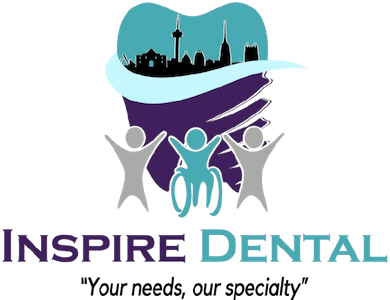Are dental examinations and cleans really necessary?
They are. A dental exam is more than just poking, prodding, and counting your teeth. When we're doing an examination, we're checking and examining your mouth for oral cancer, infections, things that can go missed and then turn into really big problems later. Infections and cavities often don't hurt until they become significant and require extensive treatment. An examination helps us prevent or catch things early and keep you healthy. The mouth is the gateway to the body, and we want to ensure it is clear and clean.
What's included in a dental examination?
Usually, x-rays, an oral cancer screening, and a gum assessment. We also look at your teeth and do scans of your teeth and bite. These steps ensure everything is clean, healthy, and balanced, allowing us to create a preventative plan for you.
What is the dentist really looking for during an exam?
We're looking to ensure things are healthy. We know what healthy looks like, so we can easily spot what's not healthy. Some things we check for include:
- Oral Cancer: It's treatable when caught small but can be life-threatening if it grows. Many people who get oral cancer never smoked or did drugs, so we're always checking.
- Gum Disease: It's one of the most prevailing problems in America. People with gum disease tend to live seven years less than average. We do a gum assessment to ensure no progressing disease.
We check these areas because most physicians don't look at them. We want to ensure you don't have cancer and that your gums are healthy. We also verify the health of your teeth.
What recommendations are given after a dental exam?
Typically, we recommend an electric toothbrush versus a manual one, different types of toothpaste, floss, or a Waterpik. These products are scientifically proven to be better. We also recommend treatment for any issues we find and create a preventative plan to avoid future problems. Education is essential to ensure you maintain good oral health.
Are there different types of dental exams?
Yes, there are different types based on whether you have an immediate toothache, are a new patient, or are due for a biannual exam. Emergency exams take about an hour, biannual exams about 10-15 minutes, and new patient exams can take up to two hours. We may schedule a follow-up consult if needed. It's important not to rush the exam process to address all concerns and educate you on maintaining and preventing issues.
Is a dental exam going to be painful?
No, it's not. We want to ensure you are comfortable and all your concerns are addressed. We understand past experiences can create fear, so we aim to make this process comfortable. If treatment that could be painful is required, we have options to manage anxiety and pain.

